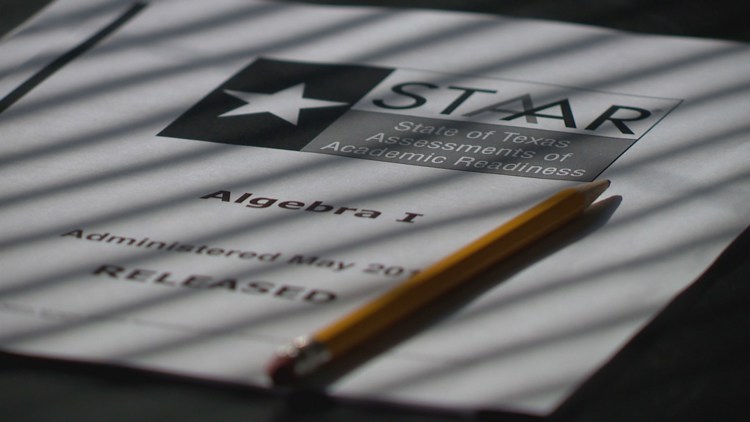AUSTIN -- The KVUE Defenders has learned thousands of Texas students received high school diplomas without passing their final standardized test required by the state.
Up until about three months ago, high school seniors were required to pass all of their standardized tests to graduate. A new law that took effect in May allows a special group of students to bypass the test.
Robert Horn, 18, is one of those students. The full-time diesel mechanic and welder makes enough money to afford an apartment of his own while most of his friends still live at home.
"Most of them are jealous because they don't have their own place yet," said Horn while working at his shop.
This past June, he graduated from Manor High School. Horn passed all of his classes, but he couldn't pass the writing portion of his final standardized STAAR test – a requirement to graduate in Texas. He struggled with the test all through school.
"It just puts so much emotional stress on you. You're trying to pass a test every day, all the time. If you don't pass, you're not going to succeed, so you give up," said Horn.
Just before giving up on becoming a graduate, Texas lawmakers passed controversial new legislation to help students like Horn.
Under the law, it allows students who do not pass up to two STAAR tests to earn their high school diplomas through graduation committees. Those committees factor in attendance records and extracurricular activities. Students still have to pass each of their classes.
After the law passed in May, the KVUE Defenders discovered school districts across the state took advantage of it immediately. Records from 56 districts show at least 3,005 students have graduated by committee, but were unable to pass the final test.
State Sen. Kel Seliger (R-Amarillo) authored the legislation, which must be renewed every two years.
"We're trying to have a system that looks at the whole child and makes sure the young person does not stay in high school who ought to be graduating and going on [to] whatever post-secondary endeavor," Seliger said.
Many business groups in Texas disagree with the new rule, including the Austin Chamber of Commerce.
"This session they decided for the next two years to overturn 30 years of expectations to say, 'Yeah, you don't need to demonstrate knowledge and we'll just give you a diploma,'" said Drew Scheberle, the chamber's vice president of education and talent development.
Scheberle believes Texas schools already have a difficult time preparing students. According to Austin Community College, the number of incoming freshman referred to development classes because they were not prepared for college courses has increased 17 percent from 2008 to 2012. An ACC spokesperson said those are the most available numbers.
"There are things students need to know in order to be successful and the only way to know is to demonstrate whether they've learned it or not," Scheberle said.
Seliger doesn't think the STAAR test is the magic answer. "Keep in mind that as of a few year ago, very few years ago, nobody at NASA had ever taken TOS test or STAAR test. Does that mean we really didn't go to the moon?"
In most districts, more than 80 percent of all students who apply to graduate by committee are passed. Many teachers and superintendents support the new law.
Top 10 Texas school districts that reported graduation committee numbers:
- Houston ISD: 370
- Dallas: 187
- Cypress-Fairbanks ISD: 97
- Austin ISD: 91
- Fort Bend ISD: 107
- North East ISD: 41
- Aldine ISD: 182
- Katy ISD: 31
- Garland ISD: 188
- Plano ISD: 14



